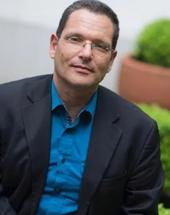Install this application on your home screen for quick and easy access when you’re on the go.
Just tap then “Add to Home Screen”
Friday 18 February, 14:00 – 16:00 GMT
Book discussion: Raphael Cohen-Almagor’s Just, Reasonable Multiculturalism: Liberalism, Culture and Coercion
Speakers
Raphael Cohen-Almagor, University of Hull
Avrom Sherr, University of London
Matthias Kortmann, Technical University of Dortmund
Chair – Carles Fernández Torné, Blanquerna-Universitat Ramon Llull

Raphael Cohen-Almagor is currently Professor of Politics at the University of Hull. He taught, inter alia, at Oxford (UK), Jerusalem, Haifa (Israel), UCLA, Johns Hopkins (USA) and Nirma University (India). He was also Senior Fellow at the Woodrow Wilson International Center for Scholars, Washington DC, and Distinguished Visiting Professor, Faculty of Laws, University College London.
In 2022, Raphael will be a Public Policy Fellow at the Woodrow Wilson International Center for Scholars, and in 2023 The Olof Palme Guest Professor, Lund University, Sweden.
Raphael has published extensively in the fields of politics, philosophy, media ethics, medical ethics, law, sociology and history. His main books are: The Boundaries of Liberty and Tolerance (1994), The Right to Die with Dignity (2001), Speech, Media and Ethics (2001, 2005), Euthanasia in The Netherlands (2004), The Scope of Tolerance (2006, 2007), The Democratic Catch (2007), Confronting the Internet's Dark Side (2015), and Just, Reasonable Multiculturalism (2021).
Raphael is now working on Resolving the Israeli-Palestinian Conflict: A Critical Study of Peace Mediation, Facilitation and Negotiations between Israel and the PLO (forthcoming).
Find out more
Avrom Sherr is Professor Emeritus at the Institute of Advanced Legal Studies, University of London. Prior to joining the IALS, he was the first Alsop Wilkinson Professor of Law at the University of Liverpool and Director of the Centre for Business and Professional Law there. He also taught at the University of Warwick for 16 years. He qualified as a solicitor in 1974 and worked in commercial litigation at Coward Chance until 1980.
Avrom is the principal architect of a system of assessment of legal competence known as Independent Peer Review.
Avrom's main research interests have been the development of legal education, the work of the legal profession, ethics in professional work and the provision of legal services. He is currently Chair of the Hamlyn Trust and the Advice Quality Standards Project Committee.
Recent work includes advising Georgia Legal Aid and the Chinese Ministry of Justice in relation to Legal Aid and the maintenance of quality in legal work; ethical research for Save The Children and safeguarding for the UKRI GCRF Accelerate Hub.
Find out more
Matthias Kortmann is an associate professor at the Faculty of Humanities and Theology, Technical University of Dortmund in Germany. After completing his dissertation on (Muslim) migrant organisations at the University of Muenster, Germany, he worked at the Institute for Migration and Ethnic Studies, University of Amsterdam, the Netherlands, the Faculty of Economics and Social Sciences, University of Potsdam, Germany and the Department of Political Science, Ludwig-Maximilians-University of Munich.
Applying a comparative perspective his research focuses on politics and religion in Europe, party competition as well religious organisations in social policy as well migration and integration politics.
Find out moreRaphael Cohen-Almagor’s 'Just, Reasonable Multiculturalism: Liberalism, Culture and Coercion' (Cambridge: Cambridge University Press, 2021) explores the main challenges against multiculturalism. Its primary objectives are twofold: to examine whether liberalism and multiculturalism are reconcilable, and what are the limits of liberal democratic interventions in illiberal affairs of minority cultures within democracy when minorities engage in practices that inflict physical harm on group members (e.g. Female Genital Mutilation) or non-physical harm (e.g. denying members property or education). In the process, the book addresses three questions: whether multiculturalism is bad for democracy; whether multiculturalism is bad for women, and whether multiculturalism contributes to terrorism.
The main thesis is that liberalism and multiculturalism are reconcilable provided that a fair balance is struck between individual rights and group rights. It is argued that reasonable multiculturalism can be achieved via mechanisms of deliberate democracy, compromise and, when necessary, coercion. Placing necessary checks on groups that discriminate against vulnerable third parties, commonly women and children, the approach insists on the protection of basic human rights as well as on exit rights for individuals if and when they wish to leave their cultural groups.
The Standing Group on Human Rights and Transitional Justice links aspects of human rights, transitional justice, democratisation, political transition, politics of transformation and politics which are relevant for research. The group brings together a broad range of topics in the field of political science research and its sub-disciplines, such as development studies, regional studies, political theory, conflict studies and more. Find out more.
The event is open to anyone interested in transitional justice, completely FREE! Registration is required but you'll only need to register once for the entire series. You’ll need a MyECPR account to register.
Loading news
Loading key dates